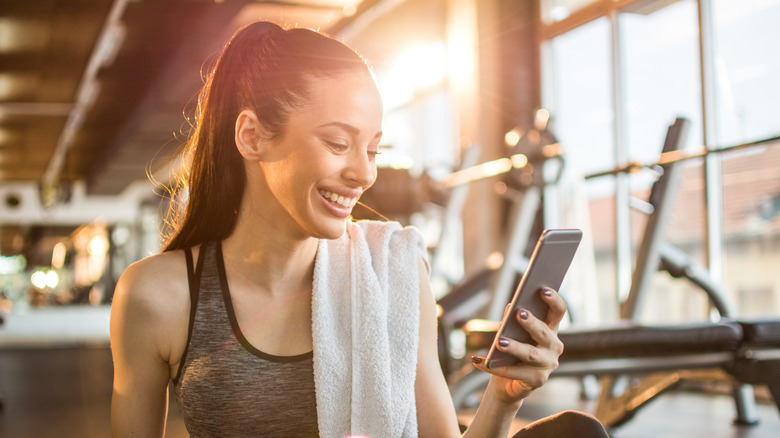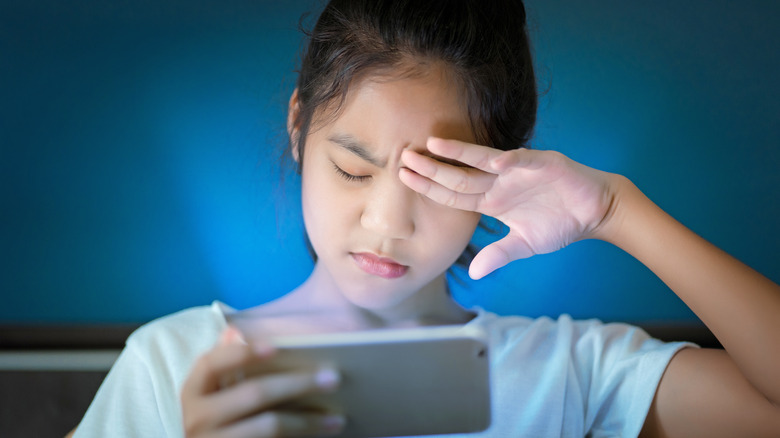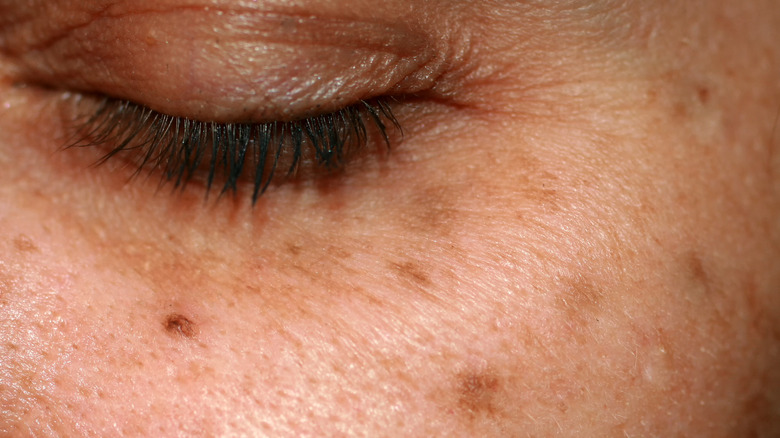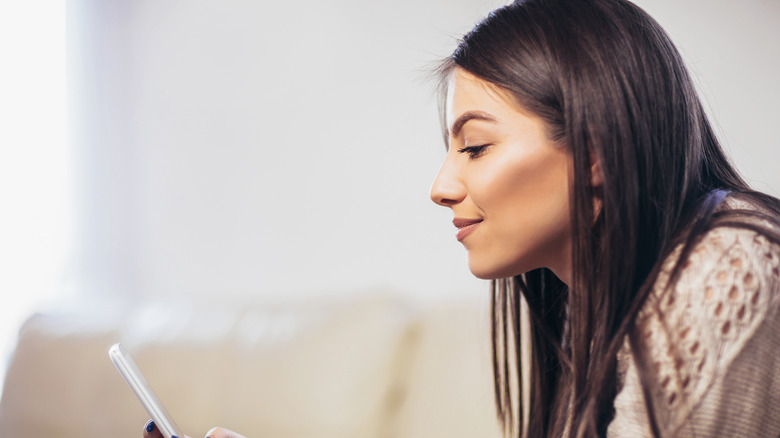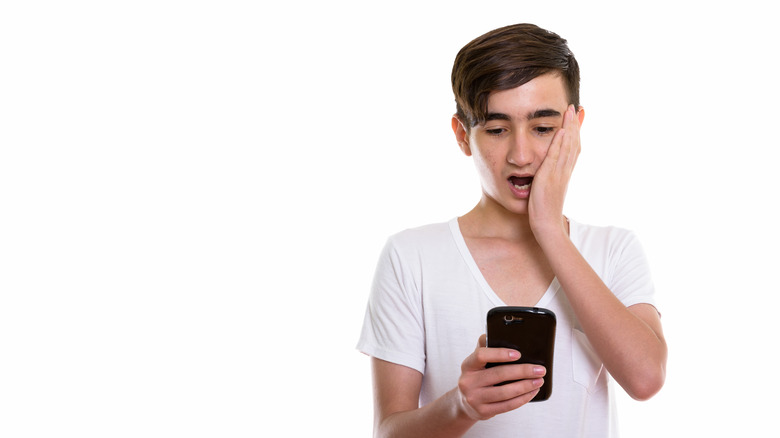How Your Phone Could Be Aging Your Skin
Yes, we've all been hearing for the past few decades how technology — screen time, specifically — is just ruining everything. We don't connect, we don't talk to one another anymore, nobody can remember to spell complete words or type complete sentences, and, oh yeah, there's also the concern that cell phones are really bad for our health. Blah, blah... scaremongering... blah. Did any of those reasons make you think about putting your phone down for a minute? Didn't think so. In fact, a 2017 study by tech giant Asurion found that most people struggle to go longer than 10 minutes without checking their phones, and 10 percent of those surveyed admitted to checking it every four minutes (via the New York Post).
But there is one reason that might make you think twice about the amount of time you spend gazing into that tiny little screen, and that's the harm it might be doing to — gasp! — your looks. Yes, being married to your phone may actually be ruining your selfies.
Your phone's blue light may be harming your skin
The kind of light emitted by phone screens, computer screens, and TVs — and just stop for one moment to think about which of these devices you hold closest to your face — is called high-energy visible (HEV) light, but is better known as blue light (though not the kind meant to get the attention of Kmart shoppers). It may potentially penetrate the skin even more deeply than UV rays, damaging its elastin, collagen, and hyaluronic acid. While most sunscreens will not protect against blue light-induced wrinkling, Shape magazine notes that several high-dollar HEV protectants are now being marketed specifically towards those worried about tech rays.
Are these products worth the cost? Elizabeth Tanzi, M.D., who is an associate clinical professor of dermatology at George Washington University Medical Center, doesn't think we need to start shelling out big bucks just yet, since damage from HEV light has yet to reach the emergency threshold. Dr. Tanzi warns that the sun is still the biggest source of skin damage, so "it's crucial not to forgo sunscreen in favor of an HEV guard."
More bad news about that blue light
While there is no definitive evidence, as of yet, that the light emitted by cell phones will lead directly to massive amounts of wrinkles, there has been a study showing that HEV exposure decreased the number of carotenoids found in the participants' skin. Carotenoids affect the skin's pigmentation, with lower carotenoid levels leading to discoloration and age spots.
Dr. Sweta Rai, spokeswoman for the British Association of Dermatologists, said that the study results didn't show any definite aging effect linked to HEV exposure, but noted that the pigmentation problems arising from such exposure may cause "a falsely aged appearance" due to the fact that "If you look at a pristine face and put brown spots on it, it will look aged from sun damage" (via the New York Post).
'Tech neck' can give you shar-pei jowls
Using your phone won't just wrinkle your face. Think about how you hold your phone — most times you're looking down at it, right? Multiple times per day. This repetitive movement can lead to wrinkles in the neck and chin area, as well as saggy, droopy jowls. Dr. Tanzi reveals that, over recent years, she's seen a number of patients in their 30s with neck and jowl wrinkles that she never used to see in anyone under 50.
There is no product that can prevent tech (or text) neck, nor any treatment short of aggressive laser therapy or skin fillers. If it's not too late, though, you can always try prevention: Hold your phone higher, so you're looking up, not down, into the screen. Plus, never walk and text. Not only might you get hit by a car (yeah, yeah, you know), but bending your head to look down at your phone as you do so could also have you go out with a neck like Jabba the Hutt.
Your phone could also be causing acne
While cell phone use may be aging your skin, there's one side effect that might, paradoxically, transport your face back to its teenage years, but not in a good way. Yes, we're talking acne. University of Arizona microbiologist Charles Gerba, Ph.D. shared the unwelcome news with Shape magazine that your cell phone screen may carry 10 times more bacteria than a toilet seat, and you're sticking this mess up against your face multiple times a day. Even a clean phone, however, can also bring on a zit attack, as just the act of pushing it into your skin causes friction that can clog pores and encourage oil glands to go into overdrive. Yuck!
While it would be nice to think that the wrinkles could cancel out the pimples and vice-versa, sadly, it doesn't work that way — although if you need to treat both conditions simultaneously, you could always try dual-duty salicylic acid. A better bet, though, might be to make those marathon phone calls via speakerphone or a hands-free headset, or at least try holding the phone away from your face as you talk.
